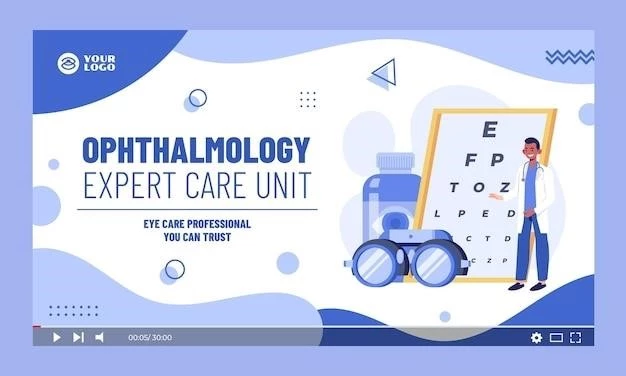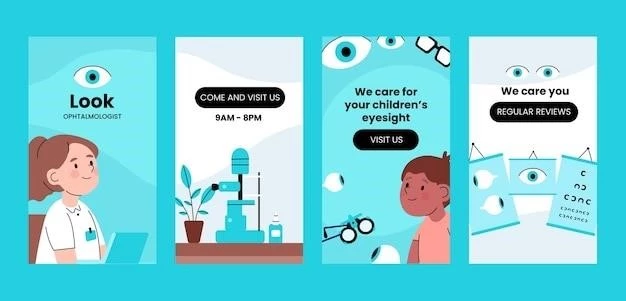Preparing for cataract surgery can improve outcomes; Follow your doctor’s instructions for a successful procedure and smooth recovery.
Preparing for Cataract Surgery
Prior to cataract surgery, inform your surgeon about any medications you’re taking. Arrange for someone to drive you home post-surgery. Follow the fasting guidelines provided by your healthcare team. Be prepared to have your eye dilated, so avoid driving yourself. Wear comfortable clothing and leave valuables at home. Plan for a relaxing and stress-free day. Remember, your eye health is a priority, so follow all pre-surgery instructions diligently to ensure a successful outcome.
Recovery Period
After cataract surgery, follow post-operative care instructions carefully. Use prescribed eye drops and avoid strenuous activities; Rest with your head elevated to reduce swelling. Wear eye protection as advised. Attend follow-up appointments to monitor progress. Report any unusual symptoms promptly. It’s normal to experience mild discomfort or blurred vision initially. Be patient, as vision improvement may take time. Protect your eyes from irritants and bright lights. Call your doctor if you have persistent pain or vision changes. A smooth recovery leads to better outcomes, so prioritize your eye health during this period.
Preventing Cataracts⁚ Tips for Eye Health
Protect your eyes by wearing sunglasses with UV protection. Maintain a healthy diet rich in antioxidants like fruits and veggies.
Importance of UV Protection
Shielding your eyes from harmful UV rays is crucial for preventing cataracts. Invest in quality sunglasses that block UVA and UVB rays. Wear a wide-brimmed hat for added protection. Limit exposure during peak sun hours. Protect children’s eyes as well with UV-blocking sunglasses. Consistent UV protection not only prevents cataracts but also reduces the risk of other eye conditions caused by sun damage. Make UV protection a daily habit to safeguard your eye health for the long term.
Balanced Diet and Antioxidants
Eating a diet rich in antioxidants from colorful fruits and vegetables can support eye health and potentially reduce cataract risk. Include foods like spinach, kale, blueberries, and carrots in your meals. Omega-3 fatty acids found in fish can also benefit your eyes. Avoid excessive sugar and processed foods which can contribute to inflammation. By maintaining a balanced diet filled with nutrients and antioxidants٫ you are promoting overall well-being and enhancing your chances of maintaining clear vision as you age.
Understanding Congenital Cataracts in Infants
Learn about early detection and treatment options for congenital cataracts in infants. Regular eye check-ups are essential for newborns.
Causes and Risk Factors
Understanding the causes and risk factors of congenital cataracts in infants is crucial. Factors like genetics, infections during pregnancy, metabolic disorders, and certain medications can contribute to cataract development. Prompt diagnosis and appropriate treatment are essential for maintaining the infant’s vision and overall eye health. If you notice any signs of cataracts in your child, consult a pediatric ophthalmologist for a thorough evaluation and personalized care plan. Early intervention is key to managing congenital cataracts effectively.
Cataracts in Adults⁚ Symptoms and Treatment Options
Learn about common symptoms like cloudy vision and treatment options such as cataract surgery. Regular eye check-ups are key for early detection.
Recognizing Cataract Symptoms
Being aware of cataract symptoms like blurry vision, glare sensitivity, and difficulty seeing at night is crucial. If you notice these signs, consult an eye specialist promptly for an evaluation. Early detection can lead to timely treatment and better outcomes. Regular eye exams can help monitor your eye health and catch cataracts in their early stages. Don’t ignore any changes in your vision quality, as they could indicate the presence of cataracts. Stay proactive about your eye health to maintain clear vision and address any issues promptly.
Treatment Modalities
When it comes to treating cataracts in adults, options include cataract surgery, which involves replacing the cloudy lens with an artificial one. Your ophthalmologist will discuss the procedure and lens options based on your individual needs. Other modalities like prescription glasses or contact lenses can improve vision temporarily. It’s essential to follow your doctor’s recommendations and attend follow-up appointments for optimal post-treatment care. By exploring the available treatment modalities and making informed decisions, you can achieve clearer vision and an improved quality of life.
Lifestyle Changes to Reduce Cataract Risk
Take steps like quitting smoking and limiting alcohol intake to reduce cataract risk. Prioritize eye health in your daily habits.
Quit Smoking and Limit Alcohol Intake
Reducing cataract risk involves quitting smoking to protect your eyes from harmful toxins and limiting alcohol intake, which can affect eye health. Smoking contributes to cataract formation and other eye diseases, while excessive alcohol consumption can lead to oxidative stress, harming the eyes. By making lifestyle changes like quitting smoking and moderating alcohol intake, you can lower your risk of developing cataracts and maintain healthy eyes for years to come. Prioritize your eye health by incorporating these changes into your daily routine for overall well-being.
The Role of Genetics in Congenital Cataracts
Understand how genetics can impact the development of congenital cataracts in infants. Genetic counseling can provide insights for family planning.
Genetic Counseling and Family Planning
Genetic counseling plays a crucial role in understanding the hereditary nature of congenital cataracts. It can help families make informed decisions about family planning and managing genetic risks. By seeking guidance from genetic counselors, families can gain valuable insights into the potential inheritance patterns of cataracts and explore preventive measures. Through open communication and proactive steps, families can navigate the implications of genetic factors in congenital cataracts and optimize strategies for future family planning.
Cataract Awareness⁚ Importance of Regular Eye Exams
Regular eye exams are vital for detecting cataracts early. Schedule routine check-ups to monitor eye health and address any vision changes promptly.

Innovative Treatments for Congenital Cataracts
Explore cutting-edge treatments like pediatric cataract surgery and intraocular lens implants to improve vision in infants with congenital cataracts. Consult a pediatric eye specialist for personalized care.
